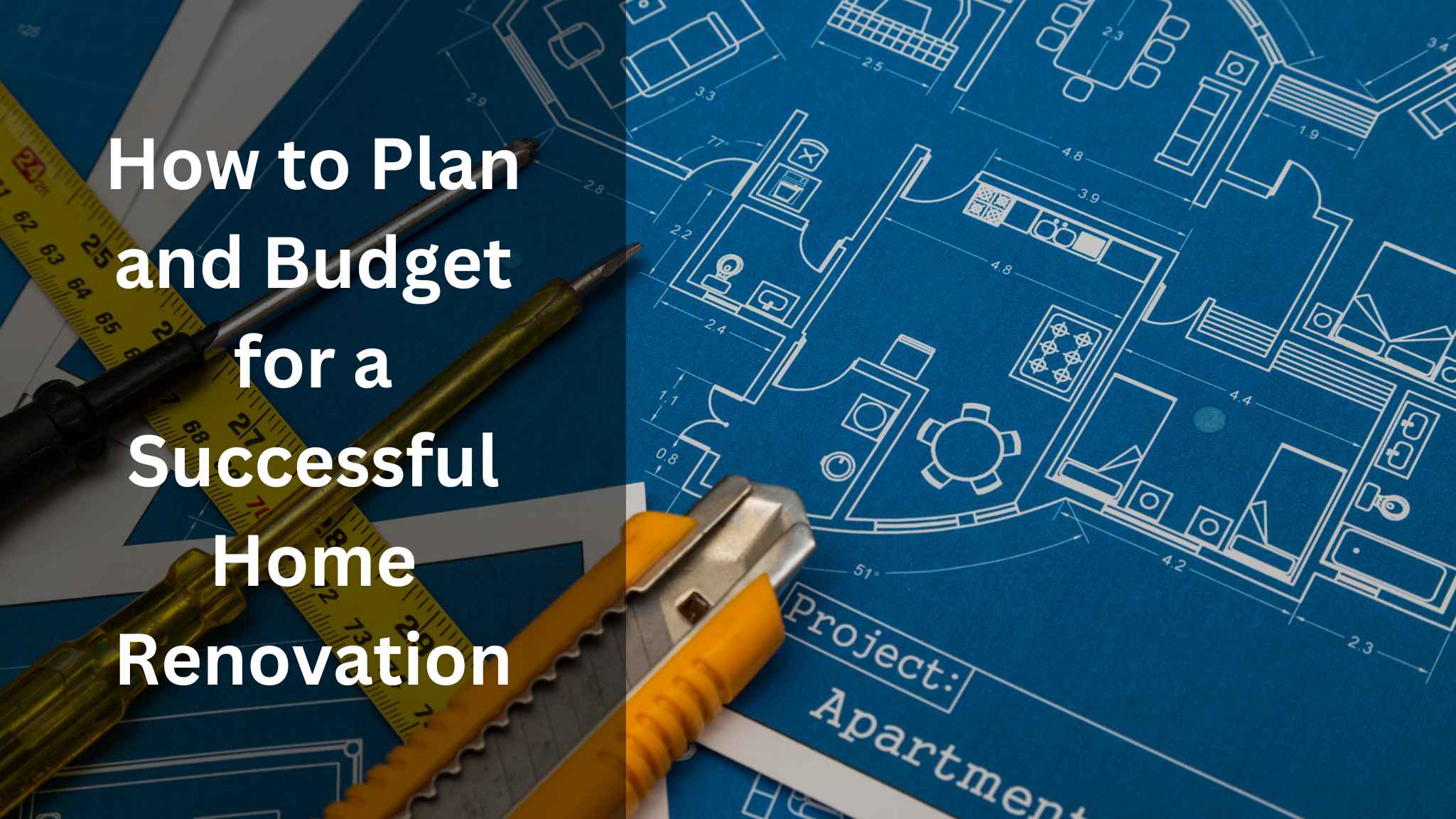How to Plan and Budget for a Successful Home Renovation: A Step-by-Step Guide
Embarking on a home renovation project can be an exciting but daunting endeavor. To ensure a successful outcome and avoid financial stress, proper planning and budgeting are essential. This blog post serves as a step-by-step guide on how to plan and budget for a successful home renovation. By following these steps, you can streamline the process, set realistic goals, estimate costs accurately, and create a detailed budget that aligns with your vision and financial capabilities.

1. Define Your Renovation Goals:
Begin by clearly defining your renovation goals. Identify the areas of your home that require improvement and prioritize your objectives. Whether it’s updating the kitchen, adding more space, or enhancing energy efficiency, a clear understanding of your goals will guide the planning and budgeting process.
2. Assess Your Budget:
Determine your renovation budget based on your financial situation and the scope of your project. Evaluate your available funds, consider financing options if necessary, and determine the maximum amount you can comfortably invest in the renovation. This will help set realistic expectations and guide your decision-making throughout the project.
3. Research and Gather Inspiration:
Conduct thorough research to gather inspiration for your renovation project. Explore home improvement magazines, websites, and social media platforms to discover design trends, materials, and innovative ideas. This research will help you develop a clear vision for your project and make informed decisions during the planning and budgeting phases.
4. Estimate Costs:
Estimate the costs associated with your renovation project. Break down the project into different components, such as materials, labor, permits, and any additional expenses. Research local prices, consult professionals if needed, and create a comprehensive list of estimated costs. This will give you a realistic understanding of the financial commitment required for your renovation.
5. Create a Detailed Budget:
Based on your cost estimates, create a detailed budget that outlines the expected expenses for each aspect of the renovation. Include a contingency fund to account for unexpected costs or changes during the project. A well-defined budget will help you stay on track, prioritize expenses, and make informed decisions as you progress through the renovation.

6. Obtain Multiple Quotes:
Request quotes from multiple contractors or service providers for the renovation work. Compare the quotes, assess their expertise and reputation, and evaluate the value they offer. Remember to consider factors beyond cost, such as experience, reliability, and customer reviews, when selecting professionals for your project.
7. Set Priorities:
Prioritize your renovation needs based on your budget and desired outcomes. Determine which aspects of the project are essential and where you can potentially make adjustments or compromises. This will help you allocate your budget effectively and ensure that your top priorities are addressed.
8. Monitor and Track Expenses:
Throughout the renovation process, diligently monitor and track your expenses. Keep a record of all costs incurred, including materials, labor, and any additional expenses. Regularly compare your actual spending against your budget to identify any deviations and make necessary adjustments to stay within your financial limits.
9. Communicate and Collaborate:
Maintain open communication and collaboration with your contractor or renovation team. Regularly discuss progress, changes, and any unforeseen challenges that may impact the budget. Effective communication ensures that everyone is aligned and allows for proactive problem-solving to minimize budgetary risks.

10. Be Flexible and Adapt:
Be prepared to adapt and make adjustments as the renovation progresses. Unforeseen issues or changes in project scope may arise, requiring flexibility in your budget and planning. By remaining flexible and open to modifications, you can navigate challenges effectively and still achieve your renovation goals within your budget.
Planning and budgeting are crucial steps in ensuring a successful home renovation project. By defining your renovation goals, assessing your budget, estimating costs, and creating a detailed budget, you can set a solid foundation for your project. Through thorough research, obtaining multiple quotes, and effective communication, you can make informed decisions and navigate the renovation process confidently. Remember to monitor expenses, set priorities, and remain flexible to adapt to any unexpected changes. With careful planning and budgeting, you can achieve your desired renovation outcomes and create a home that exceeds your expectations.





